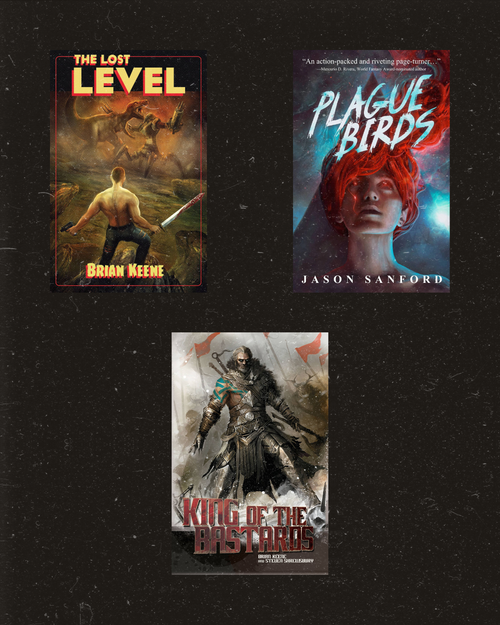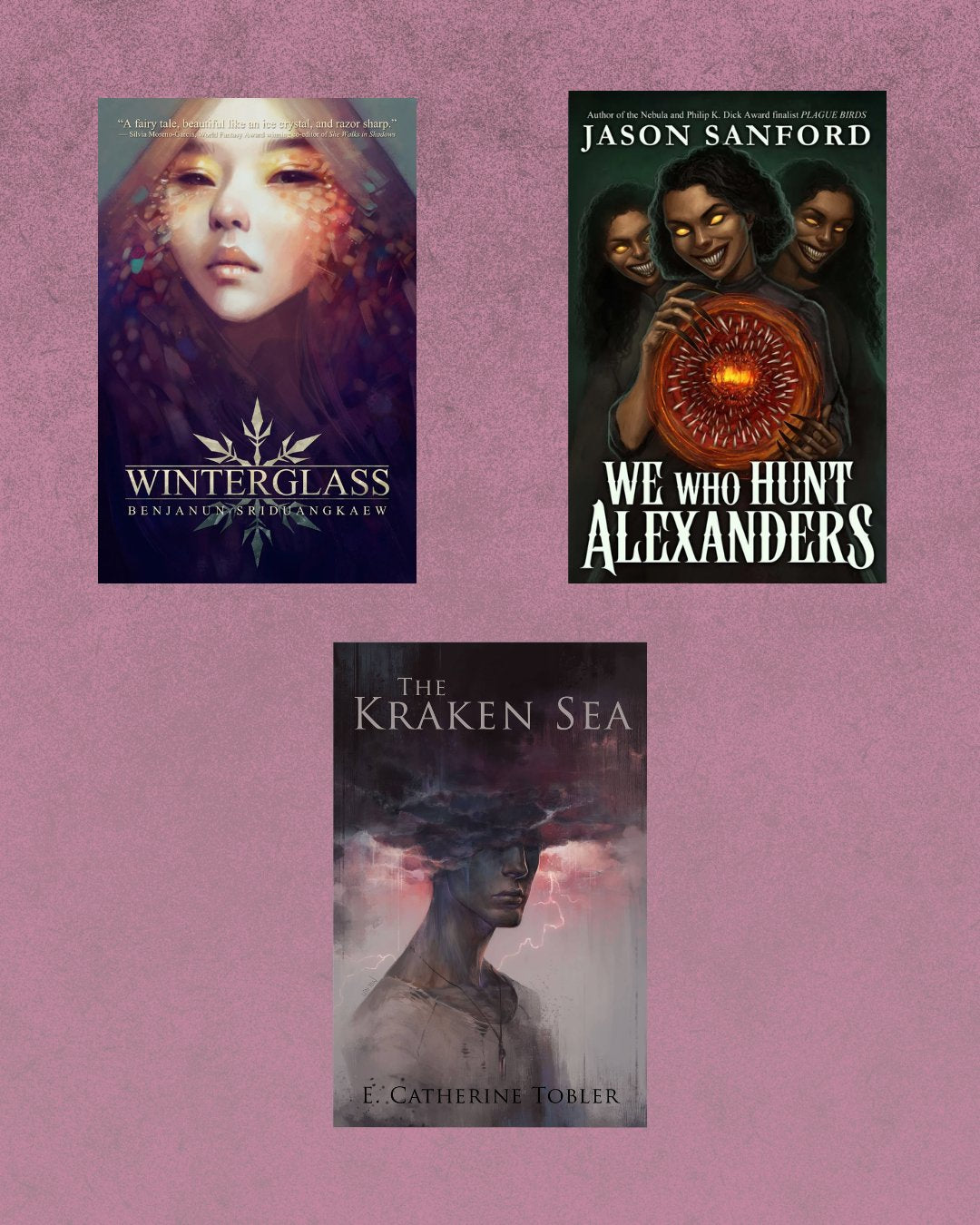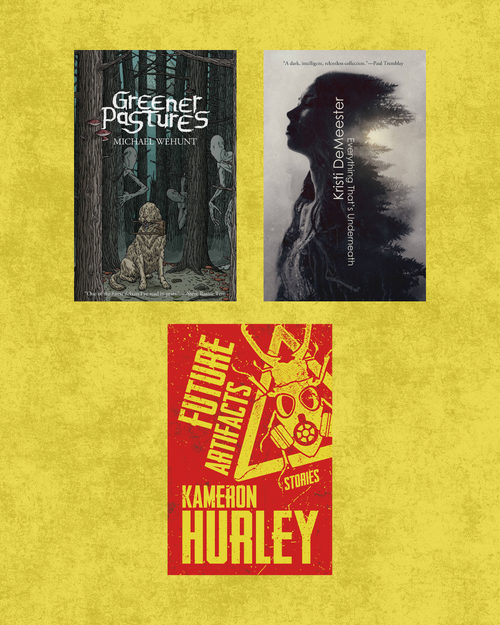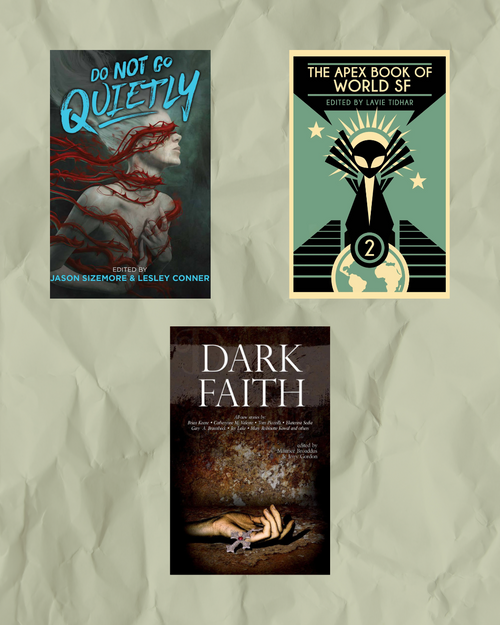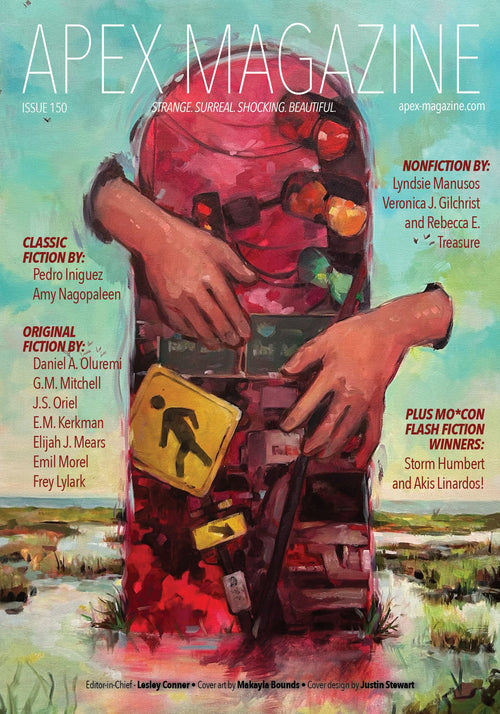These words aren’t about the tech companies worth billions of dollars or how they created generative AI models by pirating the works of artists and writers without permission or payment. These words aren’t about there being no true intelligence behind the artificial intelligence systems poised to change our world, which instead rely on algorithms crafted from data samples to produce predictive results based on queries. These words aren’t even about the people already using genAI to speed up aspects of their life, work, or schooling without a concern about how these programs might upend the world—including the jobs of countless people—in the coming decades.
No, these words are simply about why I don’t use AI to help write my fiction.
As a journalist I’ve written tens of thousands of words in recent years about genAI. My stories, including my first novel Plague Birds, were pirated by a number of tech companies to train various AI systems. The concerns I raised above about how AI systems were created and the threat they pose to people’s jobs are very legitimate.
However, let’s imagine a world where generative AI wasn’t the fruit of the poisonous tree. A world where tech companies didn’t steal works to build genAI. Where tech companies weren’t looking to replace your job and everyone else’s with AI.
Even in that case, I still wouldn’t write my stories with AI.
Before I was a writer, I was a reader. I still am. I deeply love storytelling. Thanks to stories, I’ve lived a thousand lifetimes through the eyes of various characters. I’ve witnessed happiness and tragedies. True love and absolute hatred. Beautiful dreams and harsh realities.
And after a lifetime of reading and experiencing different stories, I’ve realized the best stories always connect us with other people.
Sometimes this connection is on an emotional level. Other times it is intellectual, or factual, or crafted around imagination and dreams. But no matter the path, connecting the person experiencing the story with other people is at the heart of storytelling.
But generative AI doesn’t connect you with other people. Instead, it cobbles together a simulation of being connected with others.
Sometimes such a simulation is good enough. We’ve all had conversations with other people where only superficial banalities were exchanged. Much of life is like this. When a passing stranger on the street asks “How are you?” they don’t want to hear detailed comments about how your cat vomited all over your bed and you’re now so exhausted you can barely stay awake. Instead, the expected response is, “I’m fine, how are you?”
Our daily lives are filled with many such superficial conversations and interactions. There are phrases and cliches we routinely say at work, school or in passing with strangers, co-workers and acquaintances. There are safe topics we discuss with anyone we don’t already have a deep relationship with, such as food, sports, and the weather.
This is surface level life. This is our lives expressed without substance or depth. And this is what storytelling using generative AI essentially is.
When you ask genAI to help you with a story, you’re asking that program to make an algorithmic prediction on what words, characters, or plot points should come next. This prediction comes from analyzing millions of previously written stories and giving you what is a high tech guesstimate. There’s no originality. No deep insight into your life or the lives of others. Merely averages and algorithms dancing before your eyes.
It is, of course, possible to create a somewhat decent story in this manner. Generative AI is nothing if not extremely fast. These programs will present you with hundreds of responses to the query “What happens next in my story?” But even if you select certain genAI options over and over, you aren’t exploring deep into yourself. You aren’t building a connection with others. Instead, you’re merely compiling a superficial story. An average story. An “eh, it was okay” story.
That’s like shouting “How are you?” to a stadium full of people but not wanting any of them to give you a true response.
Again, you can create a somewhat decent story in this manner. But when I read a story, I want more than average. I expect more than good enough.
As a writer, I’ve spent a lifetime observing myself, the people around me, and the world we live in. I’ve read and studied what works in stories and what doesn’t. I’ve dreamed millions of different dreams and wondered how I can share those brief neuron flashes with others. And that’s the easy part of storytelling. The hard part is then crafting the words, characters, plots, scenes and so much more into a story that will encompass all I’ve learned and experienced while also resonating with others.
Storytelling isn’t easy. But neither is understanding yourself and the world around you.
Famed astronaut John Glenn, the first American to orbit the Earth, was once asked what it felt like to sit on top of a rocket that was ready to launch. His grim response: "I felt about as good as anybody would, sitting in a capsule on top of a rocket that were both built by the lowest bidder."
Generative AI is the lowest possible bidder for the 21st century. It’s fast. It produces decent enough results that in many instances the output will be passable.
But with stories, we want far more than passable. With stories, we should demand far more than “good enough.”
________
Jason Sanford is an award-winning science fiction and fantasy writer who’s also a passionate advocate for fellow authors, creators, and fans, in particular through reporting in his Genre Grapevine column (for which he's been a finalist multiple times for the Hugo Award for Best Fan Writer). He’s also published dozens of stories in magazines such as Apex Magazine, Asimov’s Science Fiction, Interzone, and Beneath Ceaseless Skies along with appearances in various “year’s best” anthologies and The New Voices of Science Fiction. His first novel Plague Birds was a finalist for both the 2022 Nebula Award and the 2022 Philip K. Dick Award. His new novella We Who Hunt Alexanders will be released this month. Born and raised in the American South, Jason’s previous experience includes work as an archaeologist, journalist and a Peace Corps Volunteer.








